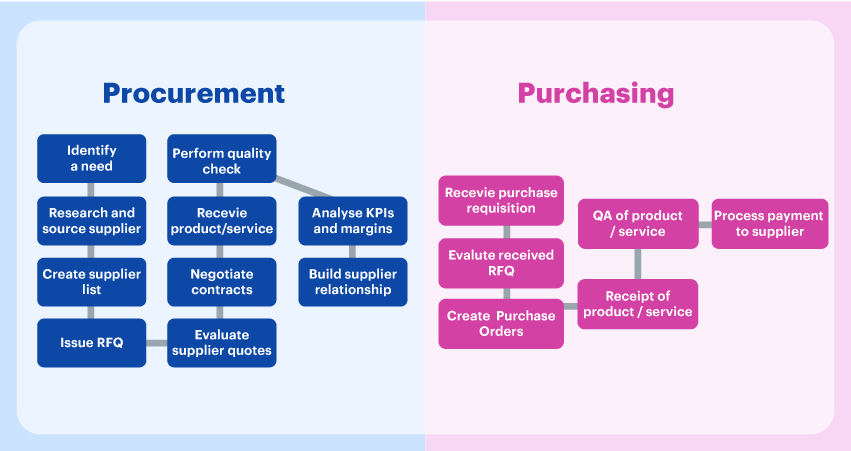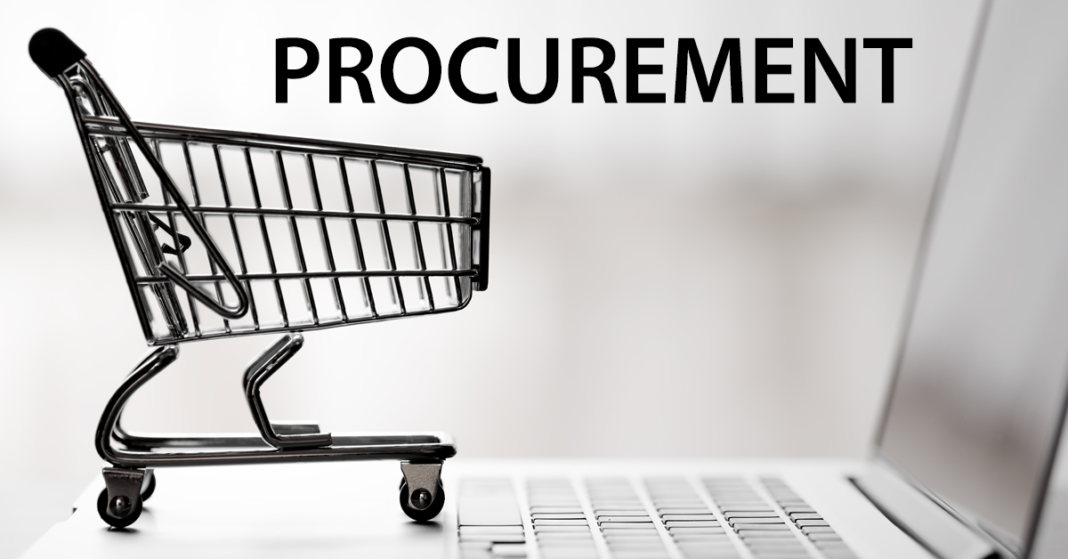In business, the terms “procurement” and “purchasing” are often used interchangeably. However, there is a big difference between the two. Procurement is a strategic process that includes planning and sourcing, while purchasing is just one part of that process.

In this blog post, we will explore what procurement is, how it differs from purchasing, and why it’s important for businesses to understand the difference. We will also provide some tips on how to get started with procurement.
What is procurement?
Procurement is the process of acquiring goods or services. It includes the identification of needs, selection of vendors, negotiation of prices, and quality control.
Purchasing is a subset of procurement that focuses on the transaction itself. It includes the ordering and receipt of goods or services.
Types of Procurement
There are many different types of procurement, and the type that is right for your organization will depend on a number of factors. Here are some of the most common types of procurement:
- Open Procurement: Open procurement is the most common type of procurement, and it simply means that any supplier can bid on a contract. This type of procurement is typically used for commodities or services that are widely available.
- Restricted Procurement: Restricted procurement is when only certain suppliers are invited to bid on a contract. This type of procurement is typically used for more specialized commodities or services.
- Sole Source Procurement: Sole source procurement is when only one supplier is able to provide the commodity or service being procured. This type of procurement is typically used when there is only one supplier that can meet the specific requirements of the contract.
- Negotiated Procurement: Negotiated procurement is when the buyer and seller negotiate the terms and conditions of the contract prior to award. This type of procurement can be used for any commodity or service, but it is typically used for more complex contracts.
The Benefits of Procurement
When it comes to business, there are a lot of moving parts. You’ve got to keep an eye on your inventory, manage your finances, and make sure your employees are happy. It can be a lot to handle, which is why many businesses choose to outsource some of their work.
One area that is often outsourced is procurement. But what exactly is procurement? And what are the benefits of using a procurement service?
Procurement is the process of acquiring goods or services. This can include everything from sourcing suppliers to negotiating contracts. A procurement team can be in charge of all aspects of the acquisition process or just specific steps, depending on the needs of the company.
There are many benefits to using a procurement service. Perhaps the most obvious benefit is that it can save you time. If you’re not familiar with the ins and outs of procurement, it can be a time-consuming process. Outsourcing this work can free up your time so you can focus on other areas of your business.
Another benefit of using a procurement service is that it can save you money. A good procurement team will have relationships with suppliers and know how to negotiate favorable terms. They’ll also be able to find discounts and rebates that you may not be aware of. In short, they can help you get more bang for your buck.
A third benefit of using a procurement service is that it can help you improve the
How to make Procurement Work for your Business
Procurement is the process of acquiring goods or services at the best possible price with the least possible impact on the environment and society. It is a strategic process that encompasses sourcing, supplier management, contract management, and compliance.
Purchasing is a transactional process that involves the purchase of goods or services. It is focused on getting the best price for a product or service.
The procurement process should be tailored to fit the needs of your business. There are a few things you can do to make procurement work for your business:
- Define your needs: The first step is to clearly define what you need. This will help you create a specification for the goods or services you want to procure. It will also help you identify potential suppliers.
- Source suppliers: Once you know what you need, you can start sourcing suppliers. You can use online directories, attend trade shows, or request referrals from other businesses. When evaluating potential suppliers, be sure to consider their price, quality, delivery time, and reputation.
- Negotiate contracts: Once you’ve selected a supplier, it’s time to negotiate a contract. Be sure to include all relevant details in the contract, such as price, delivery time, terms of payment, and warranty information. If possible, have a lawyer review the contract before signing it.
- Manage supplier performance: After awarding a contract to a supplier, it’s important to monitor
Also Read: Advance Tax Payment In India

